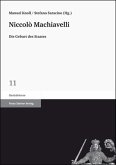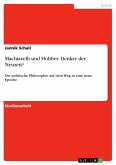Niccolò di Bernardo Machiavelli is not only one of the most fascinating figures of the Italian Renaissance, an outstanding author and statesman, but indisputably one of its most influential political theorists, whose fundamental contributions to ideas of political power - as well as to the history of modern drama - remain astonishingly pertinent. His adventurous life led him to notable heights as a diplomat and reformer of the Florentine military, with his replacement of mercenaries by a citizen-militia. His fall, exile and eventual rehabilitation followed as briskly as his rise.
Unlike many innovative thinkers about politics, he developed his radical theories of treachery and social transformation, here explored in terms of their originality, in an atmosphere of violence. Based on his experience of government, his insights led to a shift from understanding statehood, war and society as forms of finitude and stasis to those of process.
All this unfolds in Paul Oppenheimer's compelling recreation of Machiavelli's life as he actually lived it.
Unlike many innovative thinkers about politics, he developed his radical theories of treachery and social transformation, here explored in terms of their originality, in an atmosphere of violence. Based on his experience of government, his insights led to a shift from understanding statehood, war and society as forms of finitude and stasis to those of process.
All this unfolds in Paul Oppenheimer's compelling recreation of Machiavelli's life as he actually lived it.









